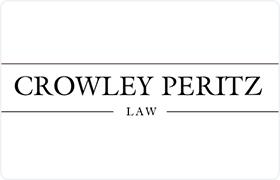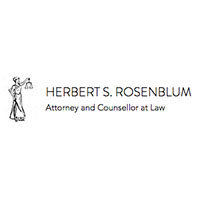 Arlington Criminal Lawyers, Virginia
Arlington Criminal Lawyers, Virginia
Sponsored Law Firm
-
 x
x

Click For More Info:
-
Crowley Peritz Law
10560 Main Street Suite 501 Fairfax, VA 22030» view mapCriminal Defense Law Over 20 Years Of Combined Experience
Our lawyers are experts in a variety of misdemeanor and felony crimes. We understand that choosing the best criminal lawyer for your case is not a simple task.
800-916-2741
Sponsored Lawyers
1-10 of 36 matches
Criminal, DUI-DWI, Felony, Misdemeanor, Federal
Karin Porter is a practicing lawyer in Virginia who focuses on criminal cases. Ms. Porter has previously served as an Assistant Commonwealth's Attorney in Virginia handling cases from DUI to violent felonies. She has tried cases involving drug charges, reckless driving, and many other practice areas.
(more)Accident & Injury, Business, Contract, Corporate, Criminal
Herbert Rosenblum is a practicing lawyer in the state of Virginia.
(more)Criminal, Traffic, DUI-DWI, Expungement, Domestic Violence & Neglect
Kaveh Noorishad represents clients in criminal and civil litigation across Virginia state courts and the U.S. District Court for the Eastern District of Virginia. He has handled matters ranging from traffic violations and DUI/DWI cases to violent crimes and liability cases. Recognized as a Super Lawyer, Rising Star, and Top 100 National Trial Attorney, he also holds a 10.0 AVVO rating, with his work featured in outlets such as The Washington Post, NBC, and ESPN. If you are facing criminal charges or need strong representation in a civil matter, contact Mr. Noorishad today at 703-542-4500 or complete our contact form online to discuss your case.
(more)


 Matthew Crowley Fairfax, VA
Matthew Crowley Fairfax, VA Practice AreasExpertise
Practice AreasExpertise



